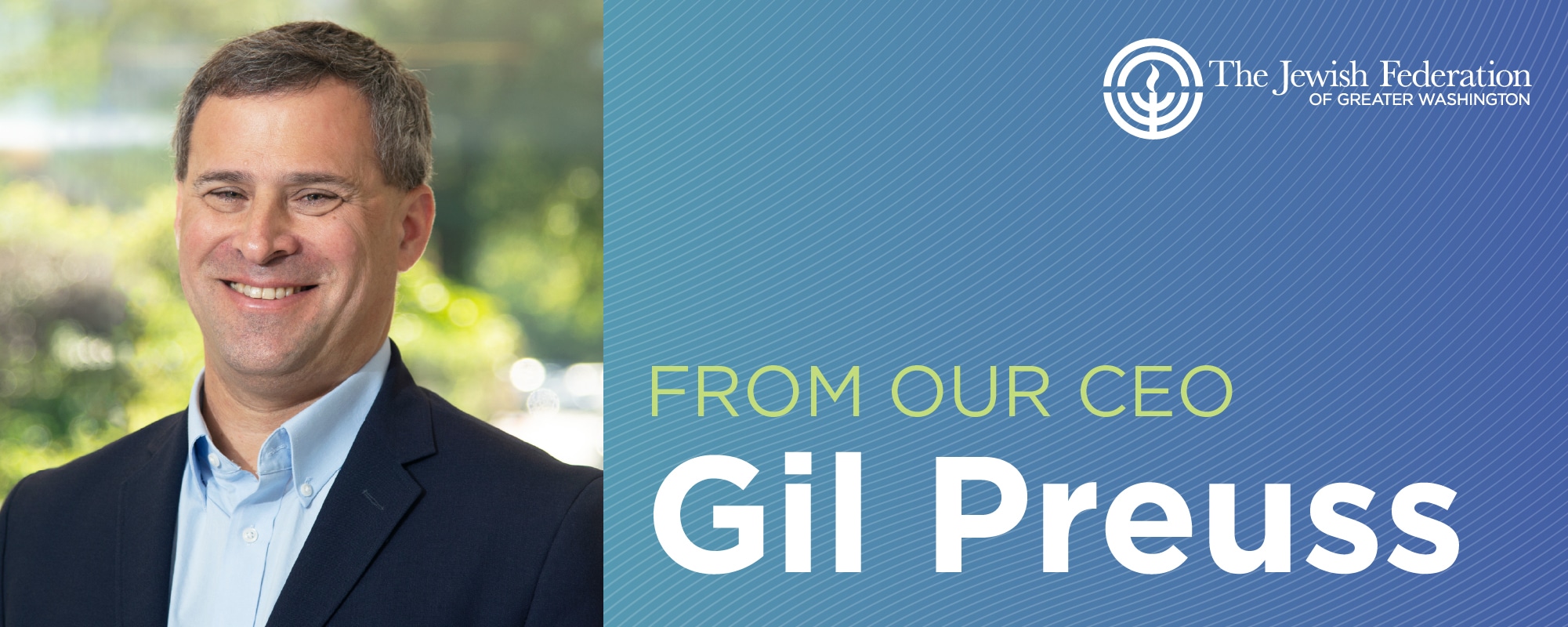-
12 June 2020

Like many of you, I have been thinking, reading, and talking about race and racism quite frequently in recent days. Our country and communities continue to grapple with explicit and implicit prejudices that have defined our history and helped create long-standing inequalities. One question has remained at the forefront: how have we built a country where a group of people are constantly treated as outsiders or perceived as a threat?
On a national level, it is clear we must remove structural barriers to equality. People are literally taking to the streets in the middle of a pandemic to demand justice. They are risking their lives to demand fair treatment. And while we continue to look at racism and division through a national lens, I also find myself thinking about the very local view.
What do we expect from our own Jewish community? How can our schools, synagogues, agencies, and institutions ensure that all community members feel a true sense of belonging?
Our community works hard to be welcoming and hospitable. We frequently talk about the story of Abraham and Sarah opening all four sides of their tent to travelers as a sign of openness and welcoming.
But what if welcoming isn’t enough—and may, in fact, not be the right approach at all?
My colleague at the Jewish Community Federation in San Francisco, CEO Danny Grossman, shared with me a community study finding that, while 77 percent of Jews in the Bay Area felt welcomed, less than 35 percent reported feeling that they “belonged.”
While welcoming reflects an invitation in, belonging is about being a vital part of something: it is based on deep, meaningful relationships, a sense of being at home, and the feeling that it is safe to reveal one’s whole self. Today, our Jewish community stands at a crossroads between being welcoming and fostering a sense of belonging for all Jews. As one person noted at a Bay Area program on creating communities of belonging, to “belong means feeling known and feeling at home.” This is so much more than being welcome. For someone to feel responsible for the community, they must feel they belong to it and that the community, in turn, belongs to them.
In Greater Washington, we too are working to build a Jewish community that truly reflects our core values, and our next steps will be crucial. It is up to all of us to ensure that nobody feels they are standing outside, waiting to be welcomed into the tent. Instead, we must focus on standing together and deepening our connections with everyone who chooses to be inside.
The vibrant Jewish future we seek to build will be one where every community member feels known as a whole human being, and where all Jewish people—particularly Jews of Color—inherently belong.
There are certainly Jewish organizations already doing this important work. But, of course, there is more to be done within our own community. As we move forward, we can all be asking:
- How are we educating our children to recognize the racial and ethnic diversity within the Jewish people?
- How are we promoting racially and ethnically diverse Jewish communal leadership?
- Are Jews of Color feeling seen and respected as part of the organized Jewish community? Are their voices not only being heard, but amplified in communal affairs?
- How are we intentionally changing organizational practices so that it is clear that everyone belongs?
I believe that if we regularly ask these questions, we will come closer to our shared expectations of being a community of belonging.
Former Israeli Prime Minister Levi Eshkol is said to have remarked, “Before we can be a light unto the nations, we need to be a light onto ourselves.” Entering Shabbat this week, this idea feels like a timely reminder that, as we seek to improve the world in which we live, we must also improve the community we call home.
Shabbat Shalom,
Gil
